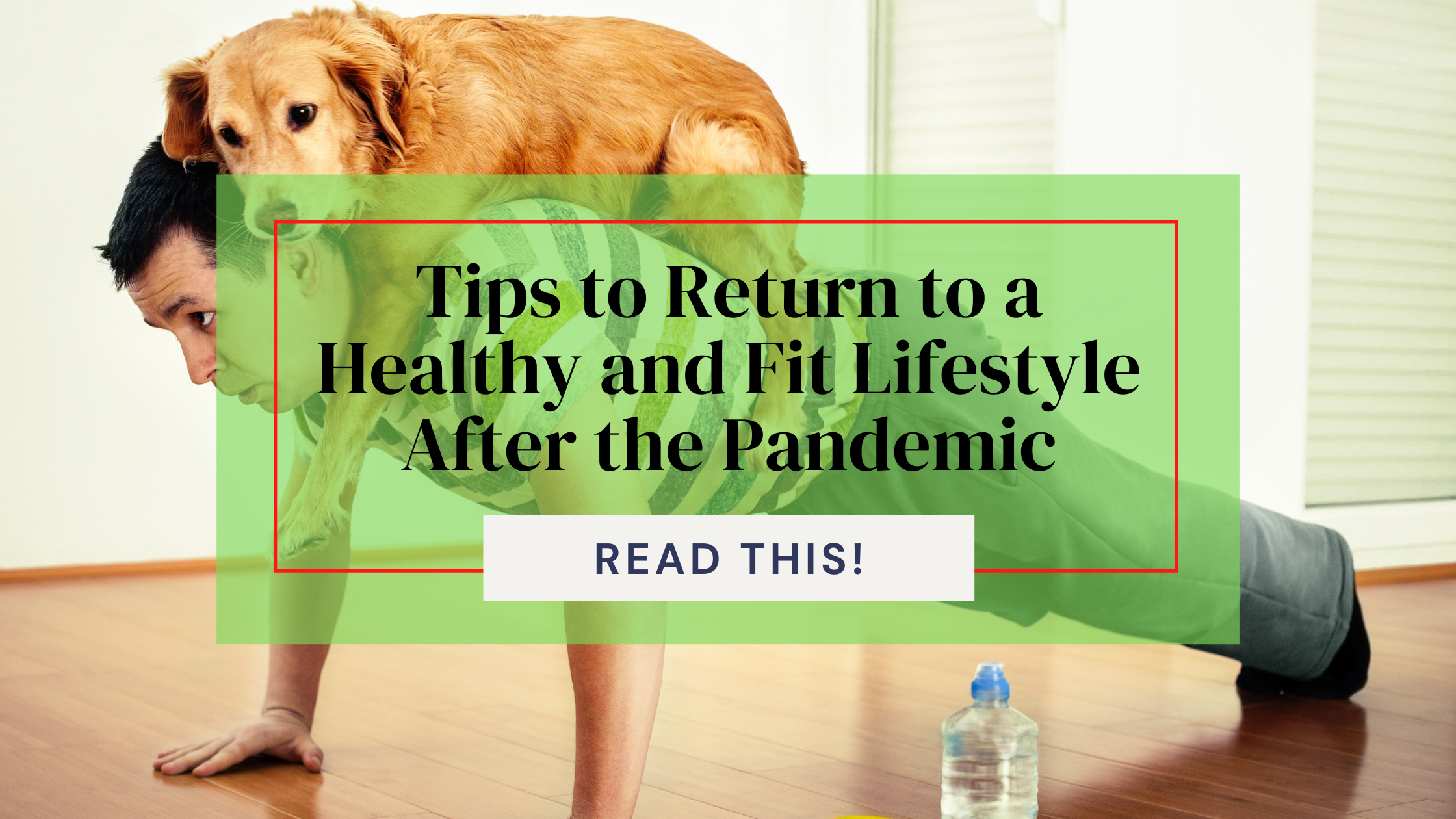Tips to Return to a Healthy and Fit Lifestyle After the Pandemic
The COVID-19 pandemic is still on the way of course but I think we can safely say that the worst is over. The worst part of the pandemic is the forced lockdowns which created an unhealthy lifestyle for most people. Some of us are forced to just be at home and watch television or do less strenuous tasks which leads to being overweight and for some even obese. How can you return to a healthy and fit lifestyle now that everything is getting back to normal? Here are some of our "Tips to Return to a Healthy and Fit Lifestyle After the Pandemic."
According to an article published by MarketWatch, "Prior to the pandemic, about four in 10 Americans (some 93.3 million adults) were already obese, according to the CDC. And according to the APA’s latest “Stress in America” report, more than two in five of the surveyed adults (42%) revealed that they gained more weight than they intended over the past 12 months. And they put on 29 pounds, on average."
This is not surprising since, around the world, governments restricted mobility and even transportation. For this reason, most of us would just be stuck inside our homes doing the usual things and if we are not creative enough, we would certainly gain weight.
So what should we do?
Find Out Your Ideal Weight
Before you start to diet or even exercise, it is important to find out about your ideal weight based on your age, gender, and height. You can use this ideal weight calculator to find out what you should be weighing right now.
Why should you weigh properly? Here is an important reminder from the National Institute on Aging (NIH):
Keeping your weight in the normal range is an important part of healthy aging. As in other stages of life, elevated body mass index (BMI) in older adults can increase the likelihood of developing health problems. These include heart disease, high blood pressure, stroke, and diabetes. Losing weight or maintaining a healthy weight can help decrease these risks.Being underweight also increases your chance of developing health problems. If you have a low BMI, you may be more likely to develop medical problems such as osteoporosis and anemia, and it may be harder to recover from an illness or infection.
Start an Active Lifestyle and Exercise
You should also start getting back to an active lifestyle as before. Remember that dieting is not the all-in-one solution to your weight loss, living a healthy and active lifestyle is. The new normal allowed the focus on healthier travel options like biking. More people are also now into mountaineering, home gardening, and jogging. It is like people discovering that they need to be healthy so that they can combat COVID-19 and even future diseases.
If you are thinking about activities that will help you burn calories then please check out this free calculation tool to estimate how many calories you will burn in a specific amount of time exercise for dozens of different exercises. Simply enter the duration of your exercise along with your weight in pounds or kilograms. This free tool quickly returns results for a variety of popular sports and activities,
Eat a Balanced Diet
Eating a balanced diet according to your daily routine is also very important. Make sure that you have a proper supply of organic and non-GMO fruits and vegetables. Take less meat especially when you ar older. Try to avoid junk food as well including soft drinks. Avoid smoking and minimize drinking of liquor.
Consult a Health Professional or Expert
If you have the money then you can also consult a health professional or expert. They can surely help you with how to get healthier and maintain proper protection against diseases and the daily challenges of life. Alternatively, you can also check out resources online but always remember to double check these resources and only follow those that are from reputable personalities.
Remember health is wealth!
ABOUT THE AUTHOR
David 'Master Pogi' D'Angelo
Social Media Specialist | Blogger |
Environmental Advocate | Events Organizer








